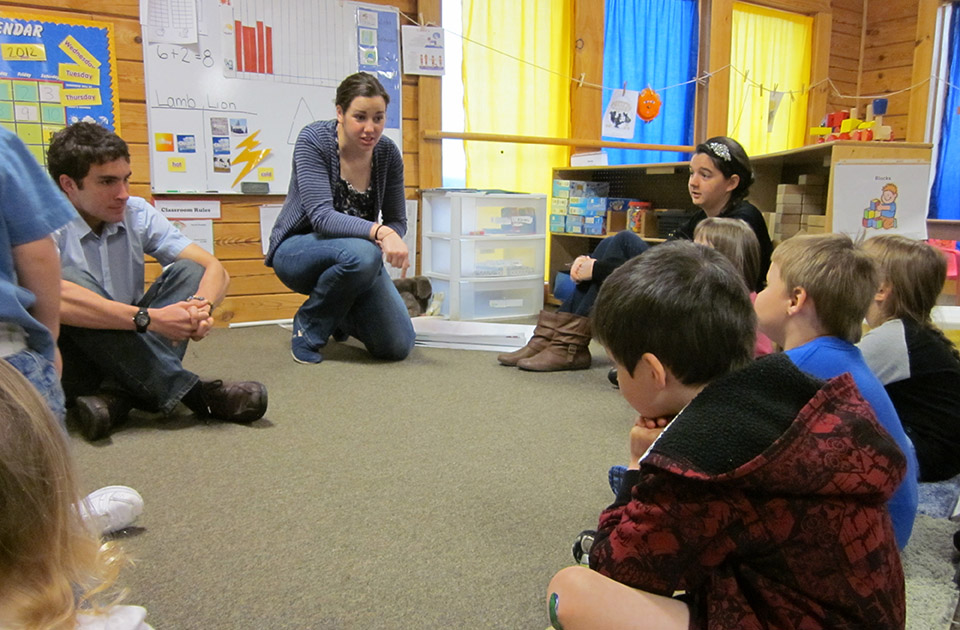Field Education
At the Saint Louis University School of Social Work, we emphasize hands-on, skills-based learning in the classroom, so that SLU students are ready to hit the ground running when it's time for them to complete fieldwork.
The Council on Social Work Education endorses "the role of field education as the 'signature pedagogy' in social work education by promoting, collaborating, recommending and distributing information to social work field educators and related membership organizations."
We collaborate with more than 400 local nonprofits, health care agencies, and community organizations to find the right fit for both the student and the fieldwork supervisor.
Work With Us
Individuals interested in supervising field experience:
- Complete the required training through the St. Louis Social Work Field Education Collaborative. Sign up for upcoming sessions.
- Apply to become an approved practicum site to be listed in the St. Louis Social Work Field Education Collaborative's database. Contact the director of field education to learn more about the process.
- See our FAQs (below) or contact SLU’s Office of Field Education.
Agencies
- Apply to become an approved practicum site to be listed in the St. Louis Social Work Field Education Collaborative's database. Contact the director of field education to learn more about the process.
SLU’s Office of Field Education works closely with students and agencies to ensure a positive and appropriate experience.
FAQ
- Review the Field Instructor Handbook (PDF) for field education policies and procedures.
- Complete the required Field Instruction Certification Program for new field instructors.
- Attend Session One (of six sessions) before taking a student, and complete all six sessions within two years.
- Complete ongoing training requirements to remain a field instructor.
- Arrange for an agency orientation and training for the student.
- Serve as a mentor and role model to the student.
- Assist the student to select roles, tasks, and activities that can be performed at the practicum site that ensure new learning appropriate for the student's program level (B.S.S.W. or M.S.W.).
- Assist the student to complete his/her Learning Agreement within the first three weeks of the semester.
- Meet with the student individually for at least one hour weekly for supervision.
- Guide the student in integrating practicum experiences and key social work concepts and methods.
- Evaluate the student's progress regularly.
- Meet with the student and practicum liaison for the mid-semester site visit.
- Provide regular, constructive feedback to students about their performance.
- Contact the assigned practicum liaison to discuss questions regarding the student's standing in the program, appropriateness for the setting, learning goals, needs and any other issues that may detract from a successful practicum experience.
- Recommend a "Satisfactory" or "Unsatisfactory" grade with the final evaluation.
- Complete organizational and field instructor application/renewal paperwork and provide updated information on a regular basis to the University and collaborative.
- Use of the University libraries; contact the Office of Field Education for access.
- Apply for tuition remission to complete a graduate course. An application may be requested by calling the Office of Field Education. The deadlines for applying for tuition remission are July 1 for a fall course; Nov. 1 for a spring course; and April 1 for a summer course.
- Receive free CEs for all Field Instructor Certification Program sessions and ongoing educational sessions.
- Receive a certificate that attests to the field instruction provided to the student at the end of the semester that may be used for social work licensure requirements for continuing education. Three CEs are granted each semester that may apply to Missouri licensure.
- Serve on various standing and ad-hoc committees and task forces within the School of Social Work.
- Students select a practicum site through a structured self-selection process. Students meet with their assigned practicum liaison to generate ideas, interview with sites and select a site that has offered an opportunity to them.
- Students learn about sites through flyers posted on our practicum board on the second floor of the School of Social Work, our internal Google practicum web page and the collaborative website. Agencies are welcome to send a one-page flyer that advertises their opportunities to the School for posting on the bulletin board and Google site.
- Part-time M.S.W. students and some B.S.S.W. students need evening and weekend hours for their practica. If your agency can offer evening and weekend hours, please share the information with the Office of Field Education.
- Students complete 300 hours for each practicum. The practicum must be completed in a minimum of 10 weeks and a maximum of 20 weeks. Therefore, students must complete between 15 and 30 hours per week.
- B.S.S.W. students complete two semesters at the same location for 480 total hours. M.S.W. students who do not have advanced standing must complete 900 hours over three semesters. These three 300-hour practica include one semester of generalist-level experience and two semesters at one site in the concentration level (600 hours total).
- All students may start a practicum as early as two weeks before the start of a semester and have between 10-20 weeks to complete a practicum. However, school social work settings typically require an all-day commitment of three to five days per week for the entire school year. For all practica, student orientation and training can count toward the total required hours for the practicum.
